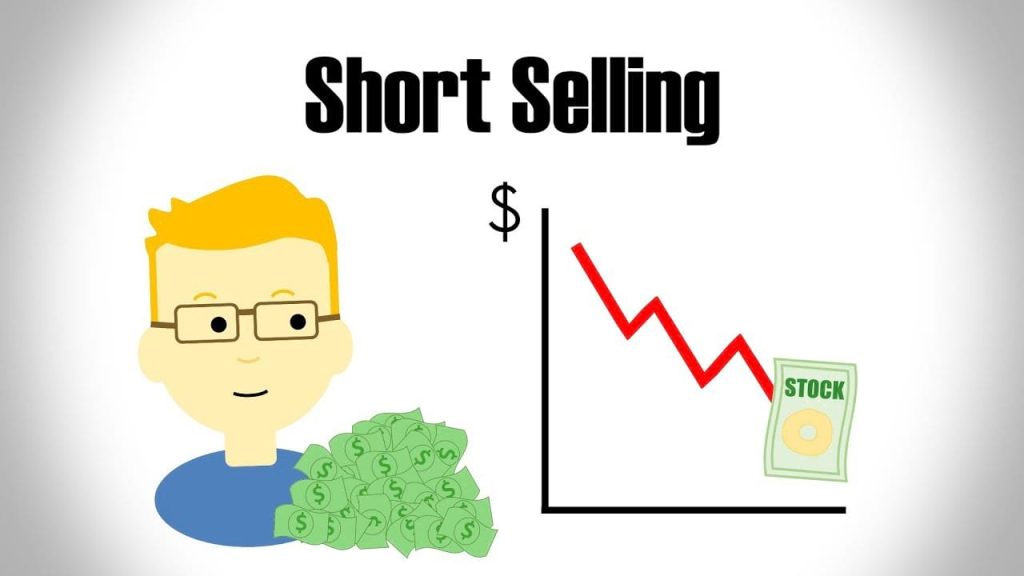The financial crisis (2007–08), also known as the Global Financial Crisis, brought the world to a severe depression that lasted years. In 2007, the crisis began with the depreciation in the subprime mortgage market in the United States, and it spread to become an international banking crisis with the collapse of the investment bank Lehman Brothers.
It sparked a worldwide recession with a long-term impact on the economy that the world had not seen before.

After the crisis, a large number of people panicked as they believed they would lose more money if they didn’t sell their securities immediately. These scared investors saw their portfolio value dropping to a high rate of 30%. While many people were selling, others saw this as a chance to benefit from the market at a big discount.
The few investors who anticipated it and took market positions that made money from the collapse of the market are the ones who need to be studied. To learn how to short stocks for profit, let us understand how the winners of the Big Short played the market for huge returns.
These are the investors who effectively went short on the US subprime mortgage market and benefited big time from it. The financial crisis saw a great market depression eliminating trillions of dollars of wealth around the world. But these financially sound investors with a perfect sense of the financial market turned this crisis into a blessing for themselves.
These are few winners of the Big Short to learn for the future strategies for investors like you:
1. Warren Buffett
Warren Buffett started buying American stocks heavily during the equity downfall. Buffett invested in giant blue-chip companies like Mars, Goldman Sachs, Bank of America, and Dow Chemical. His buys included the purchase of approximately $5 billion in perpetual preferred shares in Goldman Sachs that eventually paid him a 10% interest rate on stocks.
Similarly, Buffett financed Mars’ $23 billion purchase of Wrigley back in 2008, when big-time acquisitions were quickly getting out of the market. When Mars bought back $4.4 billion in bonds from Berkshire Hathaway, it resulted in about $680 million profit.

Buffett didn’t allow his financial stability to be risked by the market chaos, instead he played the most significant role in his every investment.
Warren Buffett rightfully wrote during the crisis: “We attempt to be fearful when others are greedy and to be greedy only when others are fearful.”
2. Carl Icahn
Carl Icahn is a fund investor who has a stellar track record of investing in distressed assets during their downfalls. Carl acquired three Las Vegas gaming properties during the financial crisis and sold them later at a high profit when the industry market improved significantly.
Carl’s strategy reached fame for a spectacular bet against the United States housing market during the crisis.
3. John Paulson
John Paulson was a hedge fund manager during the difficult times of the financial crisis. His 2009 overall hedge fund returns were decent, and he achieved huge gains from the big banks he invested in. His hedge fund firm, Paulson & Co., made over $20 billion on the trade between 2007-09 boosted by its stakes against subprime mortgages through credit default swaps.
The fame he earned during the credit crisis also helped him bring billions of dollars in additional assets and lucrative investment management. The trade worked so well that his hedge fund at FrontPoint Partners, doubled in size to $1.5 billion from $700 million during the crisis.
John made a fortune during the doom through credit swaps at large.
4. Ben Bernanke
Ben is not only an individual investor but also the head of the Federal Reserve. At the front of the country’s leading monetary policy-making body during the financial crisis, Bernanke was the main quantitative easing head. This policy of his involved reducing interest rates and induced more money into the economy to encourage banks to lend and consumers to spend to stabilize the economy in the long run.
Stock market speculators who shorted mortgage bonds made tons of money in the financial crisis. These investors recognized the buying opportunity with many company shares for sale at huge discounts.
These approaches of investors without a desperate attempt to save themselves during the worst financial crisis made them successful. They followed a solid strategy for creating substantial investment on their way to huge gains, eventually.
But, apart from the investors and traders who know how to make money when the stock market dropped. The attorneys for lawsuits, companies dealing with debt, economists, and analysts also benefited from the global crisis at large.
The financial alertness and the right perception at the right time saved a small margin of investors from the downfall.
Not to forget, the banks in the US benefited at the end of the 2008 financial crisis. Over the short term, the financial crisis affected the banking sector by causing banks to lose money to mortgage defaults, inter-bank freeze, and credit to consumers and businesses. But The Federal Reserve came to the rescue, creating $800 billion that was given to bail out the banking system of the US to save the economy at large.
Final Thoughts
These brilliant investors saw massive sell-off as a chance to increase their positions in the market at a big discount for the future. This stand of investors demonstrated explicit timing by opting for a big investment in the appropriate companies in the time of crisis. In the process, they earned huge gains as a result of their remarkable timing and financial outlook.
At the end of the day, stock trading depends on too many unrelated factors to be an exact science. Perspective during a time of financial crisis is a key differentiating factor of the profiting investors from the rest.
The winners of The Big Short managed this perspective against the global odds to put themselves in the position of huge returns for the world to amaze even today.


